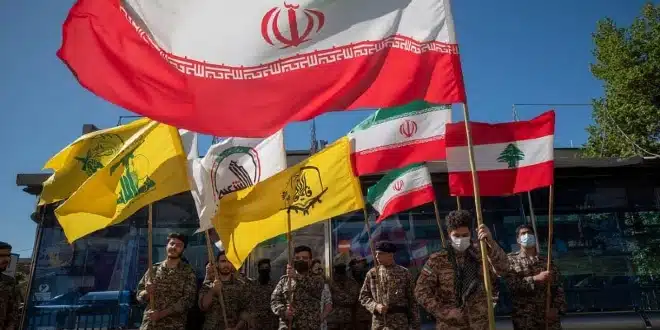U.S. envoy Tom Barrack has issued a stark warning that Lebanon risks being overtaken by regional powers unless it swiftly confronts Hezbollah’s armed presence and initiates essential political and economic reforms. Speaking to The National, Barrack painted a picture of urgency, emphasizing Lebanon’s vulnerable position amid growing regional pressures from Israel, Iran, and Syria.
“You have Israel on one side, Iran on the other, and now Syria reasserting itself. If Lebanon doesn’t act, it could revert to being part of ‘Bilad Al Sham’ again,” he said, invoking the historic term for Greater Syria. He added that Syrians colloquially view Lebanon as “our beach resort,” underlining the threat of Lebanon losing its sovereignty if it remains stagnant.
Window for Reform Narrowing
Barrack noted that the U.S., along with Saudi Arabia and Qatar, stands ready to support Lebanon—but only if Lebanese leaders take the initiative. He described Beirut’s response to his most recent proposal as “very responsive,” though several contentious issues remain unresolved.
Referring to the dormant 2023 ceasefire agreement as an example of missed opportunity, he stressed that time is running out. “It was a great agreement, but no one implemented it. We’re now at a critical juncture,” Barrack warned.
When asked whether a commitment by Hezbollah to disarm could lead to the group being removed from the U.S. foreign terrorist organization list—as happened with Syria’s Hayat Tahrir Al Sham—Barrack refrained from commenting.
Disarmament Challenges and the Role of the Lebanese Army
A key concern remains Hezbollah’s heavy weapons stockpile, including rockets and drones, which Barrack suggested should be stored under international supervision with a “mechanism” involving the U.S., France, Israel, and the Lebanese Armed Forces (LAF). However, he acknowledged Lebanon’s military lacks the personnel and funding to enforce such a process.
“The Lebanese Army is respected and neutral, but it’s under-resourced and relies on outdated equipment,” he explained. Currently, UN peacekeepers from UNIFIL provide much of the operational support with 10,000 troops on the ground, but they lack the command authority to handle significant threats.
Barrack emphasized that Hezbollah, citing daily Israeli strikes and ongoing occupation of key border areas known as the “five points,” sees no alternative to maintaining its arms. “They don’t believe the LAF can protect them,” he noted.
International Skepticism Over Funding
Efforts to strengthen Lebanon’s military face hurdles, particularly from Gulf nations that are wary of channeling funds through Lebanon’s politically entrenched and often corrupt leadership. “We’ve gone to our Gulf partners to request funding for the LAF,” Barrack explained, “but they’re hesitant, having already poured money into Lebanon with little accountability.”
He underlined that any new aid would need firm assurances that it bypasses the country’s traditional power brokers and reaches the intended institutions directly.
Laying the Groundwork for Peace
Barrack proposed a soft approach to disarmament—one that avoids civil war. He envisions the LAF gradually taking responsibility for heavy arms removal, supported by international partners and a cooperative political strategy with Hezbollah.
“That process must begin with the Lebanese Council of Ministers,” he stated. “They need to authorize the mandate, and Hezbollah, as a political party, has to agree to it.”
He also revealed that the U.S. has been quietly facilitating indirect dialogue between Lebanon and Israel—despite Lebanon’s legal restrictions on direct contact. “We’ve set up a negotiating team and are working as intermediaries,” he said.
The core issue in any agreement, according to Barrack, will be Hezbollah’s arsenal of heavy weapons hidden in residential areas and underground depots—arms that pose a serious threat to Israel’s security.
A Call for Decisive Action
Barrack reiterated his belief that Lebanon still has a chance to avoid further instability—if it acts now. “I think this government is ready,” he said. “We’re being clear: we’re offering help, not imposing terms. But if Lebanon doesn’t want it, we’ll walk away.”
Describing Lebanon’s confessional political system as potentially outdated, he made it clear that the international community’s patience is wearing thin. “It’s a small country. Maybe its system works, maybe it doesn’t. But one thing is certain—this is the moment to act.”


